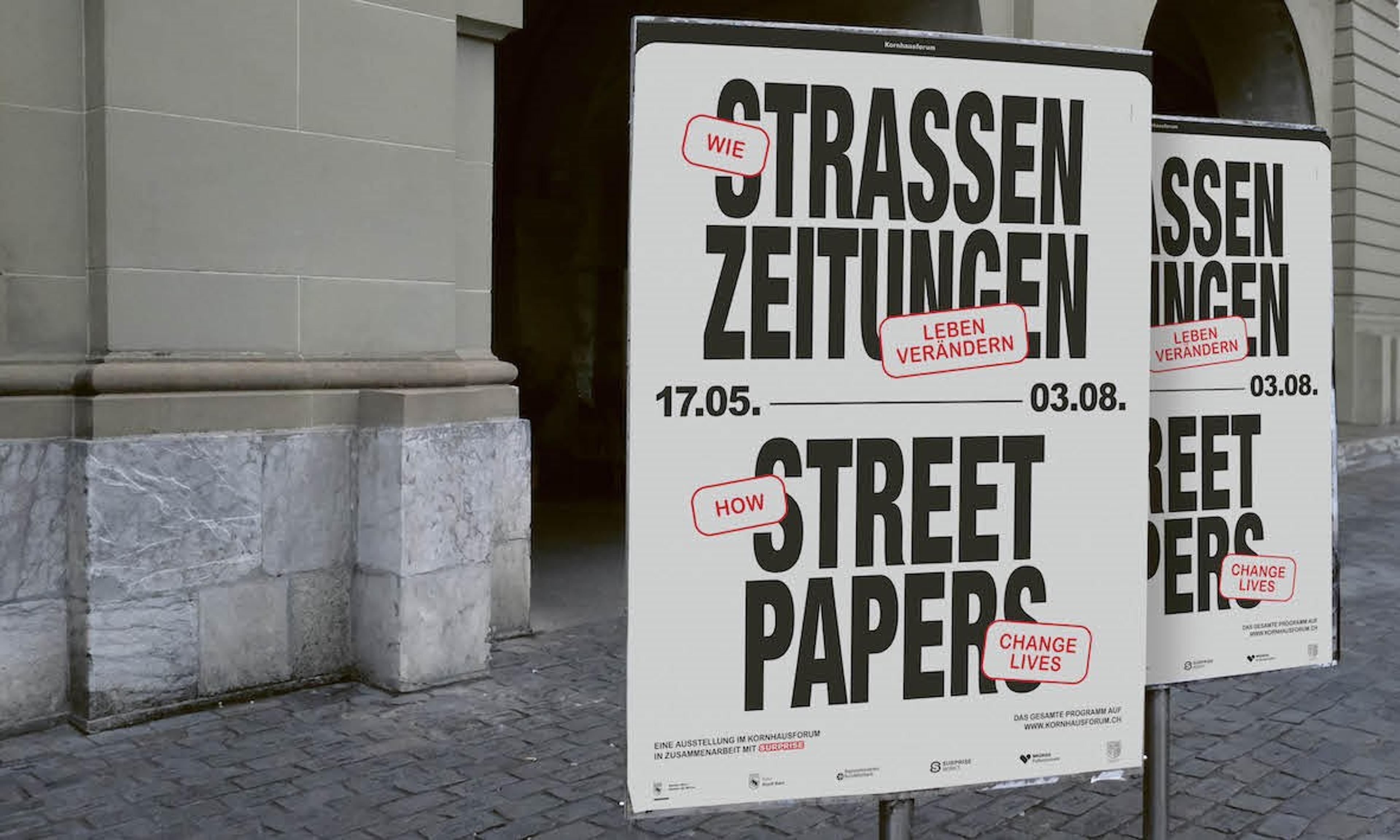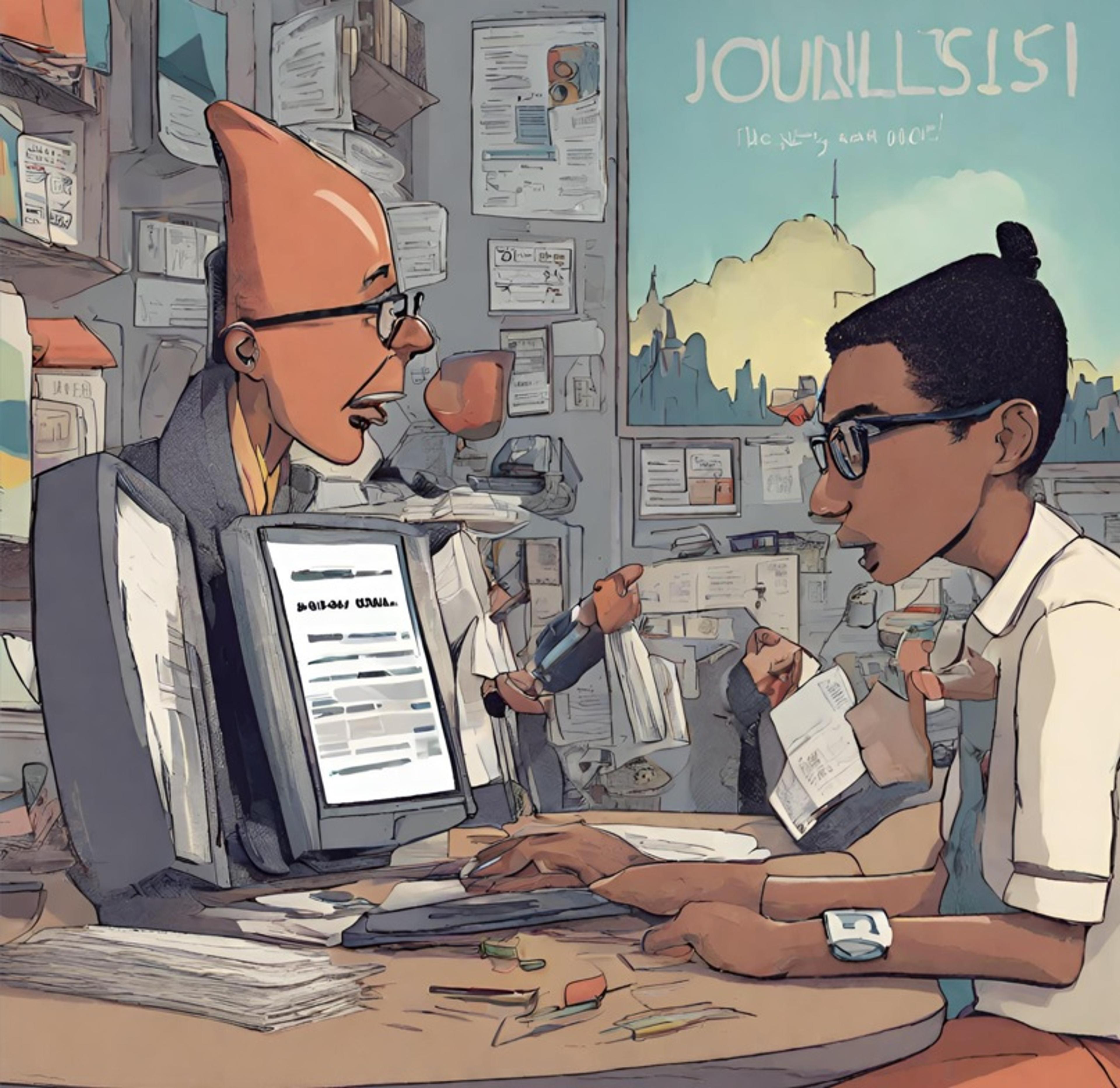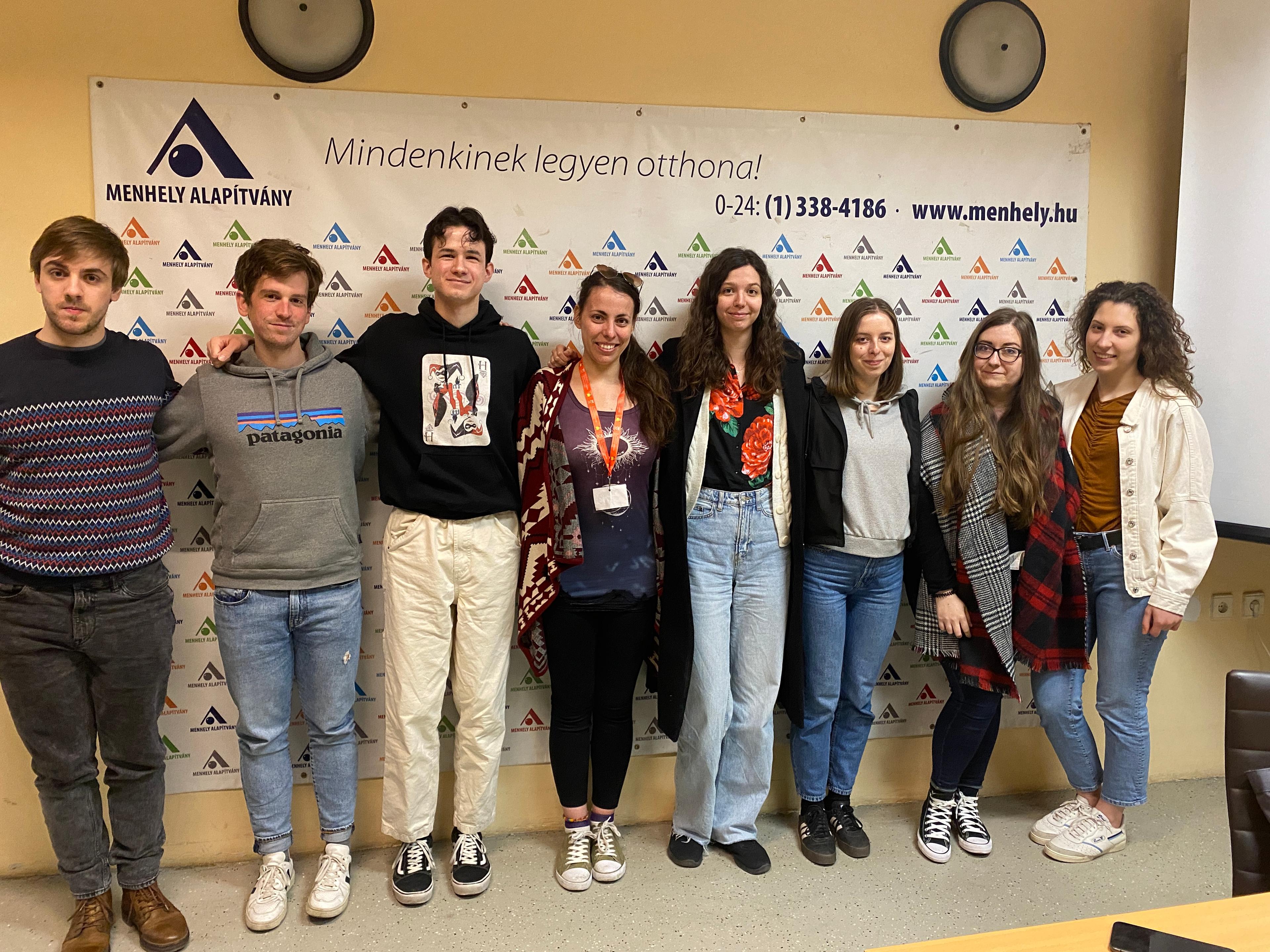Yalmay Yunupinu: “We must have our land, language and culture”
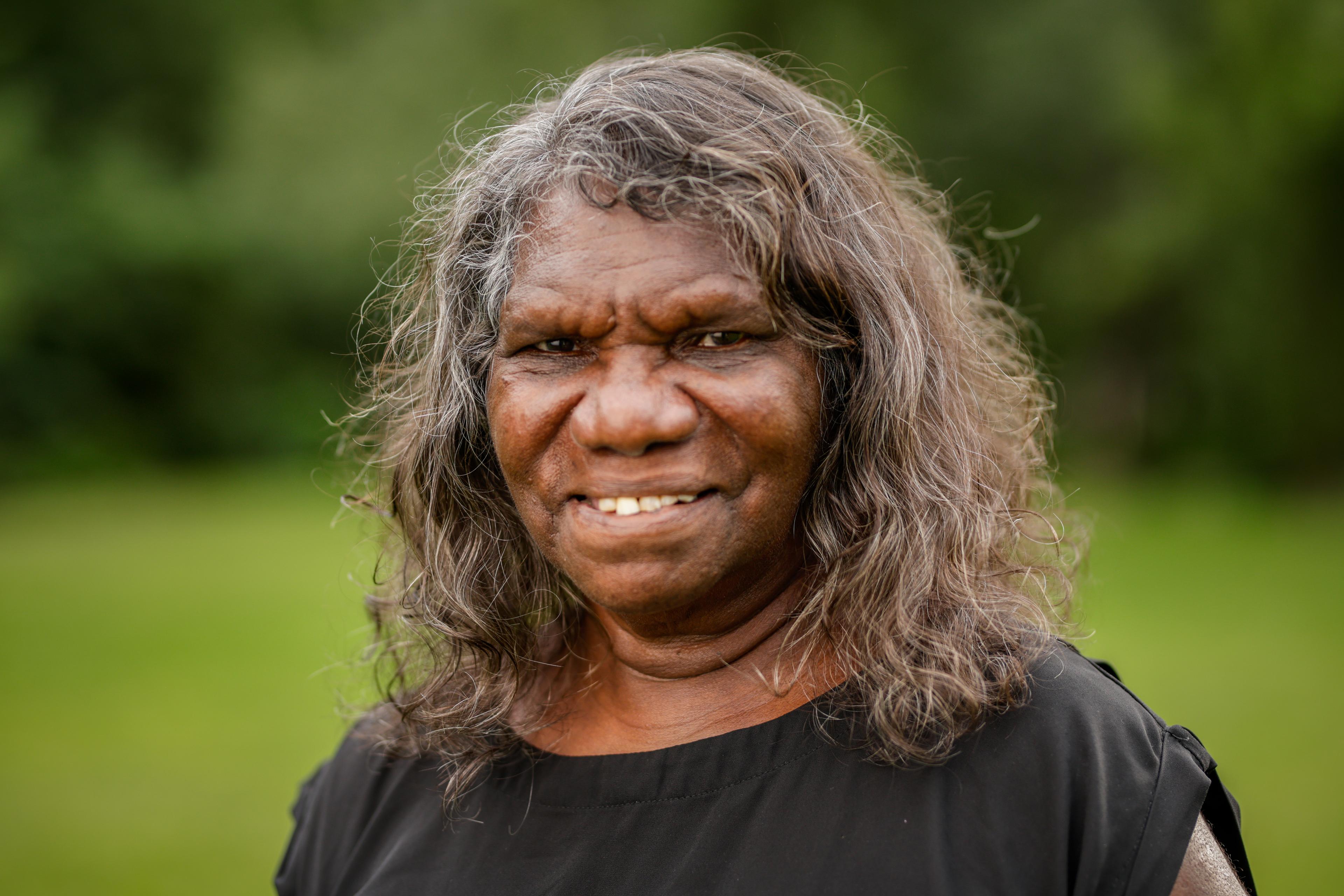
AOTY Portraits – Australian of the Year Awards 2024 – Salty Dingo 2024
By Yalmay Yunupinu
- Opinion
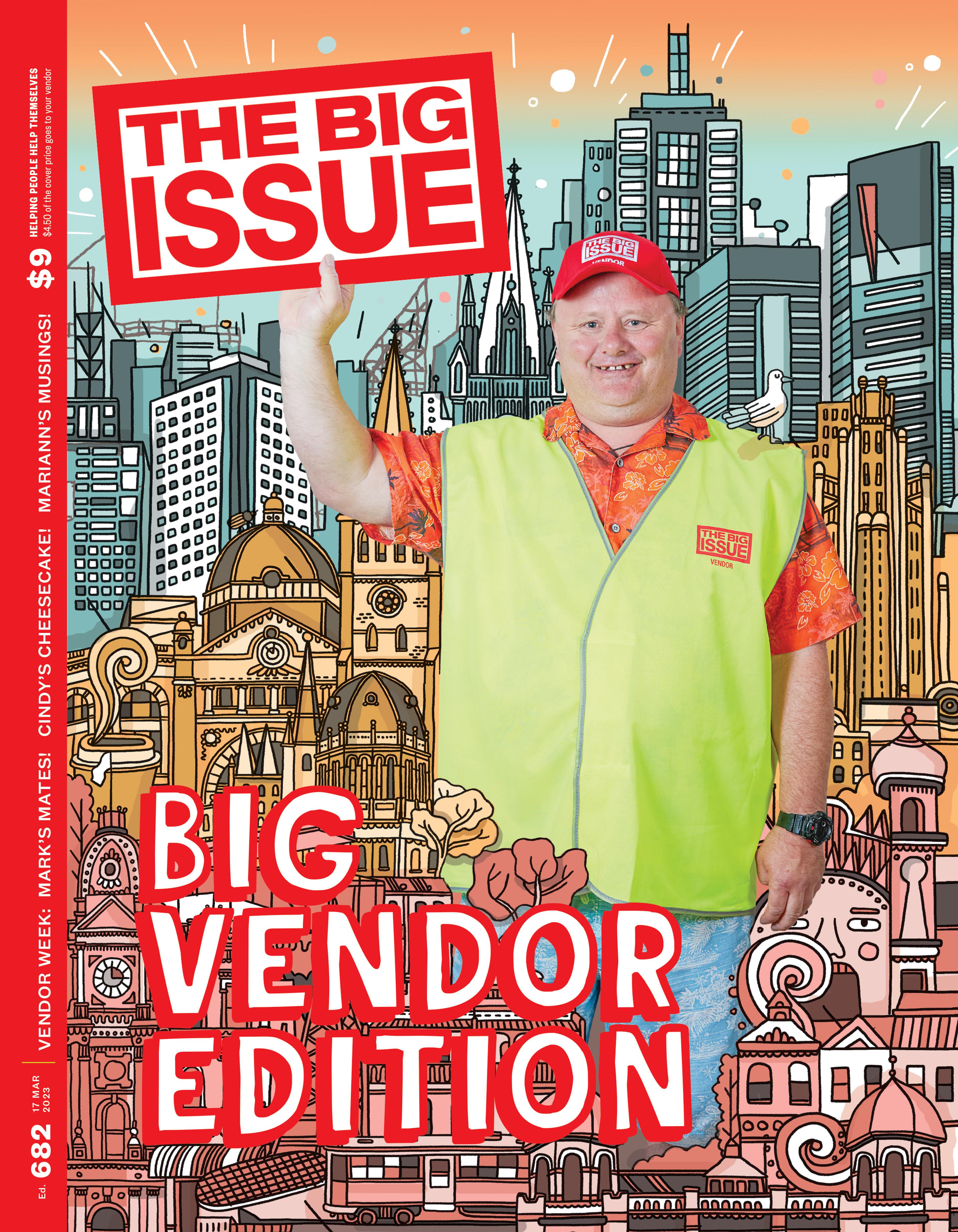
Senior Australian of the Year, Yalmay Yunupinu, spent 40 years teaching children in their own Yolnu language in north-east Arnhem Land. It was a journey of determination, defiance and, occasionally, some Dr Seuss. She told The Big Issue Australia more.
At 16, I was at the local mission school in Yirrkala. I was born and raised here at Yirrkala community. When I was around 13 or 14, Ted Egan’s (the District Welfare Officer in the region) welfare took over the school. It was all mainstream school.
After I finished, the Commonwealth took over. When I finished Year 12 – it was called “post primary” then – I did not graduate like we do now. Schools have this big celebration now, with parents, teachers and students, but not us. We just finished and left. No ceremony was held.
I was shy, inexperienced, uncomfortable to talk to others. I was a quiet observer, someone who was always with my close group of miyalk (girl) friends. We would sit under the tree and make jokes and laugh together. Sometimes we would play basketball.
There were a few different opportunities for schooling in those days. Children could go to Darwin or down south for boarding school, or to Dhupuma Barker College, about 40 minutes’ drive away.
The children who went to these boarding schools were often advanced in their learning and were specially picked to attend them. It was different for me. I wasn’t advanced, and I didn’t want to move away from home.
I really enjoyed going to our local school. It was different then – there were lots of children who went, we all liked it. It was an opportunity for us. I always forced myself to go because I wanted to challenge myself to learn English.
It was the biggest opportunity that I have encountered in my life. I think completing my schooling at Yirrkala also helped me with my passion for working at the school later on. It was like family for me.
There were so many things I wanted to do, but I really wanted to be a hairdresser or a librarian. I was very young coming out from school. I was not mature yet. I had no idea about life, no idea what life means and what opportunities and challenges it gives to you. I just enjoyed life growing up, with friends and family.
I also thought about being a poet – I loved reading poetry. I was captivated by Oodgeroo Noonuccal from Stradbroke Island. I really admired her writing. I hadn’t thought about becoming a teacher yet.
I was adopted by my brother’s mother when I was young. She raised me. In the Western ways, now we would call this “stepmother”. I always thought she was my biological mother. I was around 12 years old when I realised that I had two mothers. They both taught me a lot.
One big lesson was going to church and Sunday school. This was important for me because it taught me to be kind to others, to not fight and to be a good person.
My father was a cultural leader. He was an artist and a land rights activist. We grew up with strong leaders and activists in Arnhem Land. This helped drive my passion for fighting for our language and our people, which eventually led to me fighting for bilingual education.
I graduated in 1973 and started working in the library at Yirrkala Bilingual School in 1974. It was something I wanted to do, translating books into Yolnu Matha. It was important to me that kids could read stories in their own language.
There were lots of Dr Seuss books in the library and they were easy to translate because they were short. I had no idea the children would love them so much, and that people would be so fascinated by it.
When I was a librarian, we had a lot of children at the school – the library could get messy and loud. I would ask the children to tidy up all the books and follow the rules. When they did, we would all sit together and read a Dr Seuss book. The other favourite was listening to Winnie the Pooh.
The children loved it, reading books in their language. They also loved listening to stories in English – it helped with their learning. It’s a shame that phones, games and TVs are so easy to access today, and they stop children coming to school to learn.
In some ways it’s good, because TVs and YouTube are also teaching children literacy and English. I listen to my grandchildren singing along to English songs and learning.
This is one of the things that inspired me to work on the Yolnu Matha app. I helped develop it in Dhuwaya language for phonological awareness. The name of the app is Yäku ga Rirrakay (Letters and Sounds).
It was a language resource developed for Yolnu children to help with their skills, to know more about blending, recognising, segmenting and identifying the correct phonemes to build their Yolnu Matha literacy, which we all know is critical for learning English later on.
In 2009, the Northern Territory government had a policy that schools would have to teach English for the first four hours of the day, even if English was not the first language. I was the first person to write a letter to (Northern Territory MP) Marion Scrymgour about my concerns.
It said, “Yolnu language is our power, our foundation, our root and everything that holds us together. Yolnu language gives us strength; language is our identity, who we are. Yolnu language gives us pride. Language is our law and justice…The world is rapidly changing and we must have our land, language and culture or we are lost...”
I felt so honoured to win Senior Australian of the Year. I never thought something like this would happen to me; I was surprised. There were so many other state winners and they had really good stories. I feel really humbled to have won, but we are all winners.
The proudest moment of my life is winning all the awards but mainly this one. Putting a spotlight on my achievements shows people around our country and the world what we’re doing in our tiny community, and what Yolnu can do.
Too many of our people are diagnosed with chronic, preventable diseases such as kidney failure, heart disease, cancer and many more illnesses. Including my husband who passed away. Our people are sick and dying – young and old. We have so much loss in our community, and with so much loss also comes our cultural obligations.
Balancing these cultural commitments with work and raising children on my own has been a big challenge for me and others like me. This is one of the reasons I’m so passionate about Yolnu bush healing and medicine.
Sixteen-year-old Yalmay would think that she has done very well in her life journey. But I always think that my journey was not perfect sometimes. Lots of obstacles here and there. I had all learnt from this.
My motto is o nglama dhaya ga rrambangi djama. Translates to, “Let’s all stand up and work together.” One person can’t change the world – we need to work together. We’re all one people.
I worked at Ludmilla Primary School in Darwin in 2009 to 2010, when I was living there to look after my husband. While I was there, I translated ‘I Am Australian’ into Yolnu Matha and everyone sang it at assembly – in Yolnu and balanda (white people language). This is a message I have always carried with me.
I would tell my 16-year-old self, “Walk tall, walk straight.” Be yourself and think seriously what you want to do with your life and what the world can offer you.
I hope I can be an inspiration for others. I hope, one day, one of my students is sitting here, like me, answering questions like this to their 16-year-old self, and they say that I am someone who inspired them.
Courtesy of The Big Issue Australia / INSP.ngo
